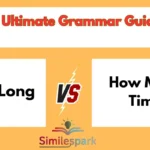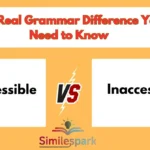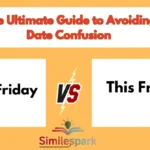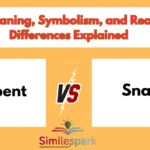Understanding the difference between “how long” and “how much time” can completely change how natural your English sounds.
Both phrases ask about time, but they’re not the same. If you’ve ever wondered which one to use — you’re not alone.
This guide breaks down everything you need to know: meaning, structure, grammar, and real-life examples.
By the end, you’ll know exactly when to say “How long have you lived here?” and when “How much time do you have?” sounds righ
English learners often get tripped up by these two phrases. They sound similar but carry different meanings and tones. The confusion comes from the fact that both talk about time, yet the focus changes depending on the context.
Here’s the short version:
| Phrase | Focus | Example | Meaning |
|---|---|---|---|
| How long | Duration | How long did you stay in Italy? | Asking about length of time |
| How much time | Quantity/Amount | How much time do we have left? | Asking about time available or used |
We’ll unpack all these nuances, plus give you examples, mistakes to avoid, and practice tips so you can sound fluent and confident.
Understanding Duration in English
When we talk about time, we often ask how long something lasts or how much time something takes. Both are duration questions — but they emphasize different things.
- “How long” focuses on the stretch or length of something.
- “How much time” focuses on the quantity of time needed, available, or spent.
Think of it like this:
“How long” is like measuring distance.
“How much time” is like counting minutes.
Example:
- How long did the movie last? → You’re asking about its duration (2 hours).
- How much time do we have before the movie starts? → You’re asking about the available time (maybe 15 minutes).
This subtle difference makes your English sound natural and precise.
“How Long” — Meaning, Usage & Structure
What “How Long” Really Means
The phrase “how long” asks about the duration or length of an activity or state. It’s used when you want to know for how much time something continues or continued.
Examples:
- How long have you been studying English?
- How long will the meeting last?
- How long is the Great Wall of China?
Notice that “how long” can also refer to length in distance, not just time. For example:
- How long is this bridge?
So “how long” is flexible, but in most conversations, it relates to time.
Common Grammatical Structures
You’ll often see this pattern:
How long + auxiliary verb + subject + main verb
Examples:
- How long have you lived here?
- How long did it take?
- How long will you stay?
Tense Guide:
| Tense | Structure | Example | Meaning |
|---|---|---|---|
| Present Perfect | How long have + subject + past participle | How long have you known him? | From past to now |
| Simple Past | How long did + subject + base verb | How long did it take? | Completed past |
| Future | How long will + subject + base verb | How long will you stay? | Duration in future |
Typical Usage Scenarios
Use “how long” for:
- Activities or actions that last over time.
- How long have you been friends?
- Experiences or states.
- How long were you abroad?
- Travel, work, study, and hobbies.
- How long does it take to learn guitar?
It emphasizes the continuity of something.
Common Mistakes with “How Long”
Avoid using “how long” for specific quantities of time or events that don’t have duration.
Incorrect:
❌ How long time did it take?
✅ How long did it take?
Incorrect:
❌ How long hours do you work?
✅ How many hours do you work?
Remember, “how long” already includes the idea of time — you don’t need to add “time” again.
Cultural and Conversational Nuance
Native speakers use “how long” constantly in casual talk. It feels friendly and conversational.
Example dialogue:
A: How long have you been married?
B: Almost ten years!
It’s direct, natural, and warm — perfect for both everyday chats and polite conversation.
“How Much Time” — Meaning, Usage & Structure
What “How Much Time” Conveys
The phrase “how much time” focuses on the amount or quantity of time. It’s used when you want to measure or calculate time precisely.
Examples:
- How much time do we have left?
- How much time did you spend on this report?
- How much time will the project require?
It’s common when time feels limited, valuable, or specific.
Grammatical Construction
Pattern:
How much time + auxiliary verb + subject + main verb?
Examples:
- How much time do you have?
- How much time did they spend?
- How much time will it take?
Tip:
You can also shorten it naturally:
- Got much time? (very casual speech)
Common Uses in Context
Use “how much time” when:
- You’re planning or managing time.
- You need specific information.
- The tone is more formal or focused.
Examples:
- How much time do we need to finish this project?
- How much time is left before lunch break?
This phrase fits better in business, academic, or professional environments.
Nuanced Use Cases
Sometimes, both phrases are grammatically correct but carry different tones.
Example:
- How long will it take to fix my phone? → Neutral, everyday question.
- How much time will it take to fix my phone? → Sounds more formal or technical.
Rule of thumb:
- Use “how long” for duration or experiences.
- Use “how much time” for planning or deadlines.
Common Mistakes with “How Much Time”
Incorrect:
❌ How much time are you living here?
✅ How long have you lived here?
Incorrect:
❌ How much time it takes?
✅ How much time does it take?
Remember: “How much time” always asks for a measurable amount — minutes, hours, or days.
Comparing “How Long” vs “How Much Time”
Side-by-Side Comparison Table
| Feature | “How Long” | “How Much Time” |
|---|---|---|
| Focus | Duration or extent | Quantity or amount |
| Tone | Casual, conversational | Formal, precise |
| Use For | Experiences, actions, habits | Planning, scheduling |
| Examples | “How long is the show?” | “How much time do we have before it starts?” |
| Formality | Informal to neutral | Neutral to formal |
| Used With | Verbs describing states | Verbs describing tasks or actions |
Subtle Differences in Meaning
- How long implies continuity — something lasts or continues for a while.
- How much time implies measurement — how many units of time are needed or available.
Think of “how long” as emotional and “how much time” as practical.
Visual Context
"How Long" → Continuous duration → Start ↔ End
"How Much Time" → Quantitative measure → ⏱️ Amount
So, if you’re describing an experience, choose “how long.”
If you’re managing time, choose “how much time.”
Practical Applications in Daily Life
In Casual Conversations
- How long did it take you to learn driving?
- How much time do you spend online every day?
Use “how long” to ask about general life experiences. Use “how much time” to sound more detailed or serious.
In Professional Settings
In offices, meetings, and reports, “how much time” is more suitable. It’s polite and precise.
Example Dialogue:
Manager: How much time will you need for the presentation?
Employee: About two hours should be enough.
Tip: In business writing or emails, prefer “how much time” for clarity and professionalism.
In Academic Environments
When describing studies, projects, or research:
- How long did your experiment last?
- How much time did you dedicate to data collection?
Examiners often listen for these distinctions in IELTS or TOEFL speaking tests. Using the right phrase can boost your fluency score.
Real-Life Examples & Exercises
Practice Sentences
Try filling in the blanks:
- _________ have you been learning English?
- _________ will it take to fix your car?
- _________ do you spend on social media daily?
Answers:
- How long
- How much time
- How much time
Rewriting Exercise
Fix the wrong sentences:
- ❌ How long time did you take?
✅ How long did you take? - ❌ How much time are you knowing her?
✅ How long have you known her?
From Real Life
Case Study: Office Project
- Incorrect: How long time will this report take?
- Correct: How much time will this report take to complete?
Result: Clearer communication and professional tone.
Quick Reference Tables
Verb Pairing Table
| Verb | Use With | Example |
|---|---|---|
| Take | Both | How long does it take? / How much time does it take? |
| Spend | How much time | How much time did you spend on it? |
| Last | How long | How long did the movie last? |
| Need | How much time | How much time do you need to finish? |
Common Collocations
| Phrase | Meaning | Example |
|---|---|---|
| Spend time | Use time for something | I spent time reading. |
| Take time | Require time | It takes time to learn patience. |
| Have time | Possess available time | Do you have time to talk? |
| Waste time | Use time poorly | Don’t waste time arguing. |
FAQs
What is the difference between “how long” and “how much time”?
“How long” asks about the duration of an activity, while “how much time” asks about the amount of time available or required.
Can “how long” and “how much time” be used interchangeably?
Sometimes — yes. But “how long” is for experiences; “how much time” suits measurable or scheduled tasks.
Is “how long” used only for time?
No. It can also mean length in distance, like “How long is this road?”
Which phrase sounds more formal?
“How much time” is more formal and suitable for business or academic use.
What are common mistakes learners make?
Adding “time” after “how long” (e.g., How long time did it take?) or mixing them in the wrong context.
Summary & Key Takeaways
- “How long” → Duration or extent.
- “How much time” → Quantity or measurement.
- Choose based on context and tone.
- “How long” fits conversations; “how much time” fits plans or tasks.
- Practice using both naturally — the difference becomes second nature.
Conclusion
Both “how long” and “how much time” help you talk about time — but in different ways. “How long” captures the feeling of how extended something is, while “how much time” measures it like a clock.
Mastering these two phrases makes your English sound not just correct, but native-level natural. Try noticing how people use them in movies, meetings, or chats — and soon, you’ll use them instinctively.










